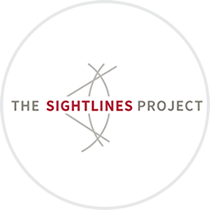 Within each area, we will focus in on some of the most compelling findings of the initial Sightlines report. These projects range in approach and include webpages highlighting informative and timely news stories and research studies on select topics, comprehensive reviews of the academic literature, analysis of existing datasets, survey and experimental studies, and randomized interventions. Below are examples of projects currently underway in each domain:
Within each area, we will focus in on some of the most compelling findings of the initial Sightlines report. These projects range in approach and include webpages highlighting informative and timely news stories and research studies on select topics, comprehensive reviews of the academic literature, analysis of existing datasets, survey and experimental studies, and randomized interventions. Below are examples of projects currently underway in each domain:
Financial Security: Using data from the national longitudinal survey of youth, we are currently assessing whether shifts in the timing of common life events such as marriage/cohabitation and children is one reason for the lower likelihood of Millennials’ to own a home.
Healthy Living: Measures of a healthy diet are often erroneous and do not capture what Americans are actually eating. To better capture this, we will be conducting a comprehensive review of the academic literature in both fields of medicine and technology to identify commonly used assessments of diet and determine the possibility of a gold standard approach.
Social Engagement: Compared to the previous generation, Baby Boomers are less socially engaged. One explanation is that they are “sandwiched” between Millennials moving back home and aging parents requiring care. We are currently conducting a nationwide survey of family caregivers to assess their level of social interaction outside of their immediate family to test this possibility.
RESEARCH PROJECTS
Featured
 Overall A Tale of Two Cities |
 Healthy Living Shifting Diet Measurement from Myopic to Holistic Approach |
 Social Engagement Complexities of Family Interactions |
 Financial Security Shifting Life Events and Home ownership among Millennials |
See all research projects
|
|


